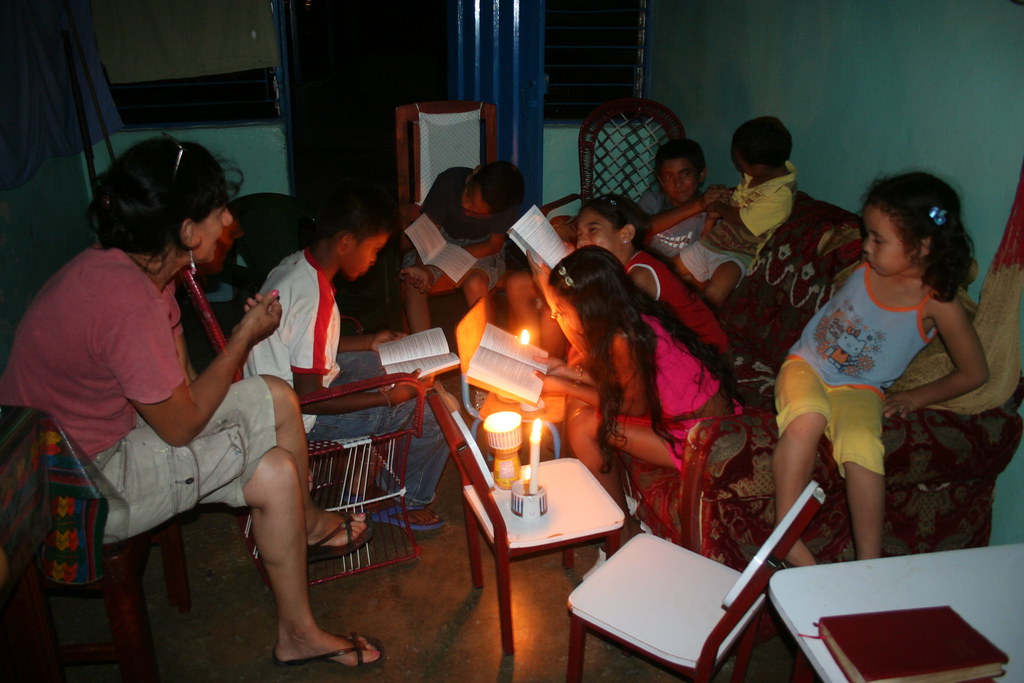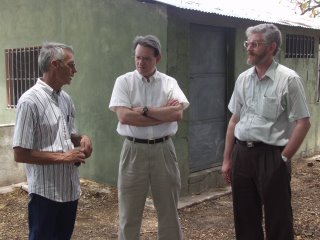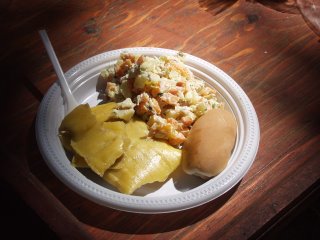I came to Venezuela as a volunteer for the Tierra de Gracia agricultural mission in the eastern state of Monagas. This was a working farm with three goals:
- Generate revenue to support a pastor for small rural parishes in an economically depressed area.
- Help the people improve their skills to find higher-paying agricultural jobs.
- Encourage them to grow as much of their own food as possible.
After Luz Maria and I were married, we both lived in Monagas and were involved with the Tierra de Gracia mission for about a year. We lived on the farm where one of our chores was caring for a flock of chickens. Many people in the surrounding area were eager to buy eggs and chicken straight from the farm.
Late in 2004 we returned to Luz Maria's property in the western state of Barinas and start our own mission there. This was a parcel of land where Luz Maria had planted many fruit trees in the 1990s. We learned a lot working with former missionaries, Dale and Sandra Saville, But since we envisioned our mission as a center for Christian education, at first we did not expect what we learned about agriculture in Monagas to be as important as it has become.
Now Venezuela is going through the worst economic crisis it has faced in decades. With oil prices at an all-time low, the country is largely unable to import essential food items or medicines. Street protests over the shortages have turned violent, and people have begun ransacking businesses for food. The crisis is severely affecting the country's educational system as teachers and students abandon classes to search for food.
In the face of this crisis, we have planted more food crops on our land, including cassava, eggplants, plantains and papaya, in addition to our orange, grapefruit, avocado and mango trees. We are increasing our flock of chickens to 30 laying hens. Not only is this helping us to support ourselves and provide breakfast every day for 10 to 20 preschool children, but we are sharing our extra produce with neighbors, and incorporating gardening and raising backyard chickens into our preschool activities.
Above all, we are trusting in the Lord's providence to sustain us through hard times. We are teaching this to the children as well. In telling them the story of Ruth and her mother-in-law, Naomi, I emphasized that here was a family that had to deal with a food shortage, as many do in Venezuela today. The Lord helped them through this crisis, and later, even when all the men in the family died, God did not desert the two women who placed their trust in Him. Ruth was able to support herself and Naomi by gathering grain that the harvest crews left in the field. Then God blessed her with a new husband, Boaz, and children who would form the lineage of King David and our Lord Jesus Himself.
"The LORD repay you for what you have done, and a full reward be given you by the LORD, the God of Israel, under whose wings you have come to take refuge!” Ruth 2:12
With these words, Boaz praises Ruth, who had gone out into the fields to gather the remains of the grain harvest for herself and Naomi, not only for her devotion to her mother-in-law, but also for her faith in the God of Israel who had determined Ruth’s course. These words are echoed in Matthew 23:37 and Luke 13:34, where Jesus compares His concern for the people of Jerusalem to a hen gathering her brood under her wings. These New Testament verses are the only direct references to chickens in the canonical Scriptures. The apocryphal book of 2 Esdras 1:30 describes God as saying to the unheeding children of Israel, “I gathered you as a hen gathers her brood under her wings. But now, what shall I do to you? I will cast you out from my presence.”
Old Testament references to "fatted fowl", such as 1 Kings 4:23, could mean pigeons or geese. Chickens are believed to have been domesticated in India around 2,000 B.C. They appeared in Egypt before the 14th cent. B.C., so the Israelites may have known of chickens before the Exodus, and there is a remote possibility that chickens came to Palestine from Egypt. The earliest archeological evidence from Palestine so far is a seal showing a fighting cock, found at Tell el-Nasbeh, c. 600 B.C.
In Deuteronomy 32:11, Moses compares God's love and mercy toward His people to a mother eagle gathering its chicks under its wings. This passage also is echoed in Christ's call for the people of Jerusalm to repent of their sins in Matthew and Mark, an example of how the promise of God's care for those who seek refuge in Him is repeated throughout the Old and New Testaments.
Nuestro Proyecto Agrícola from David Ernst on Vimeo.

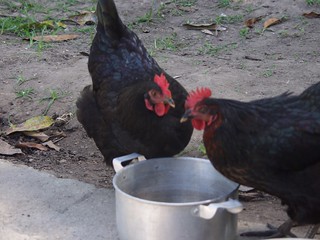
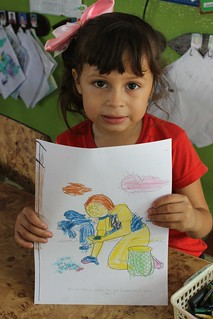
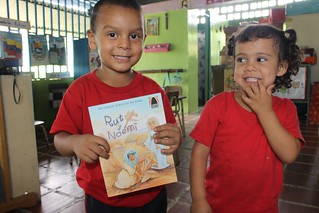
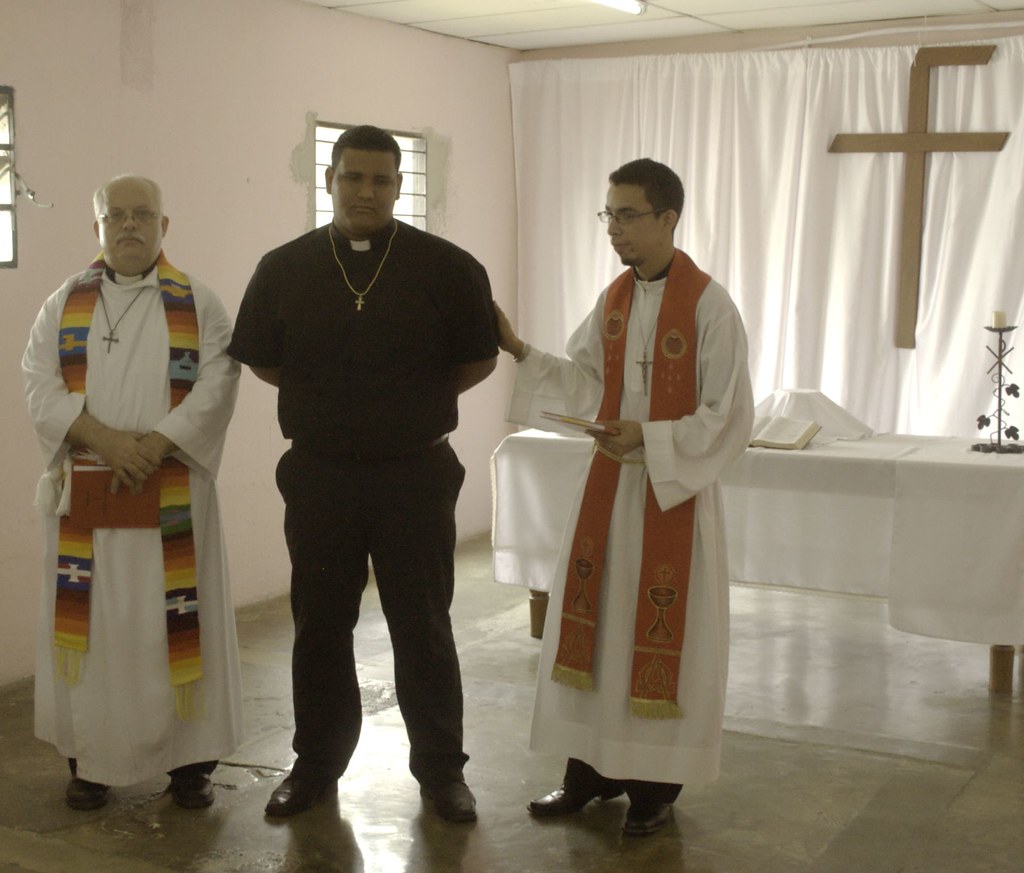
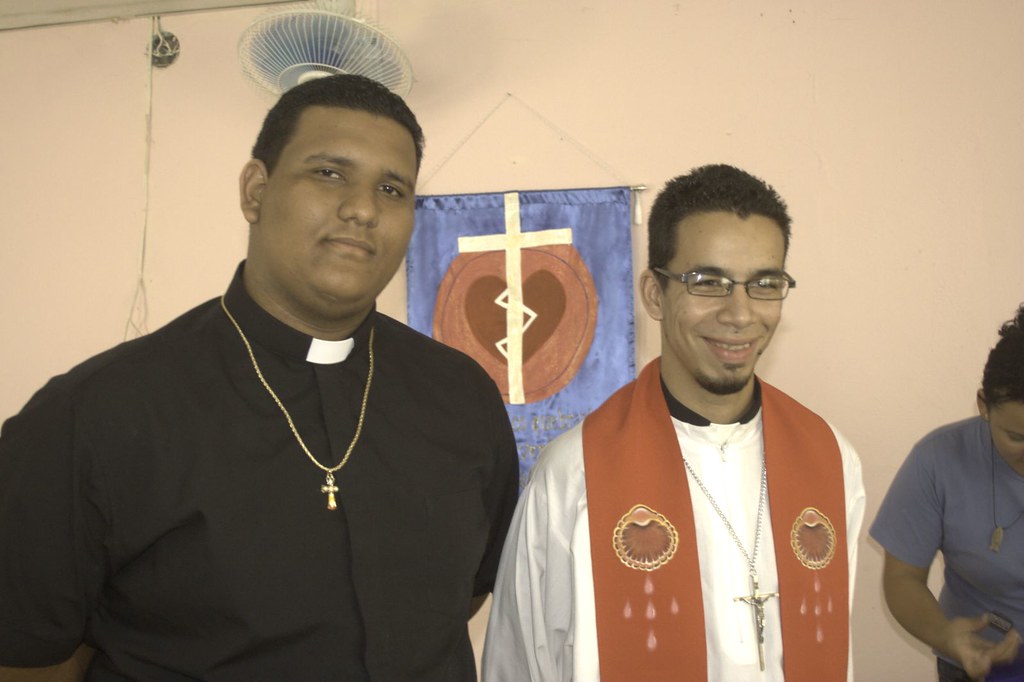




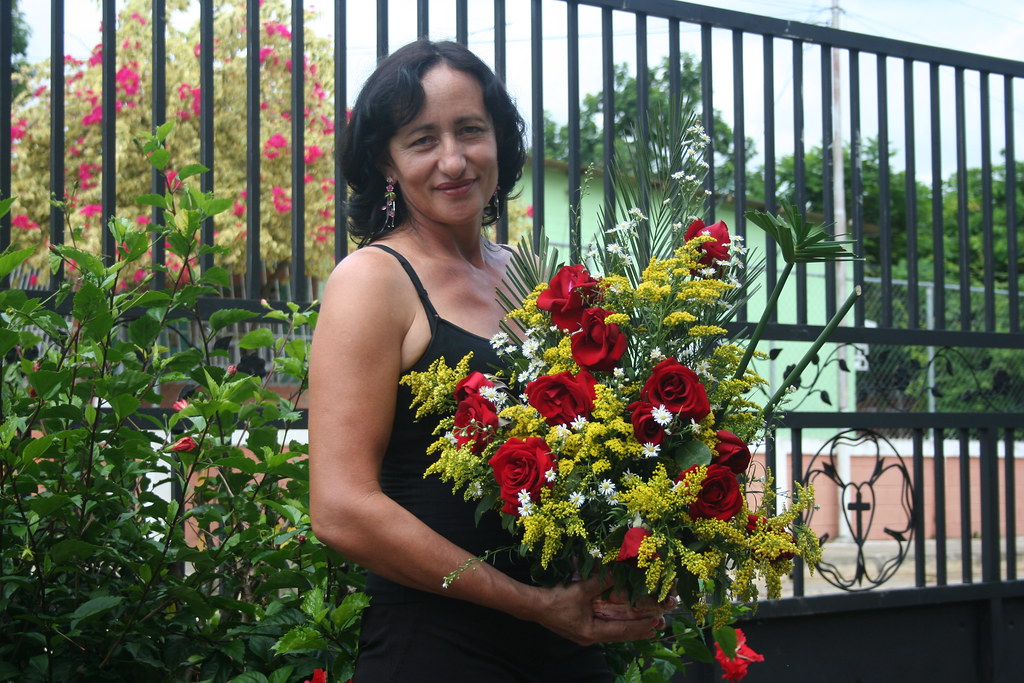
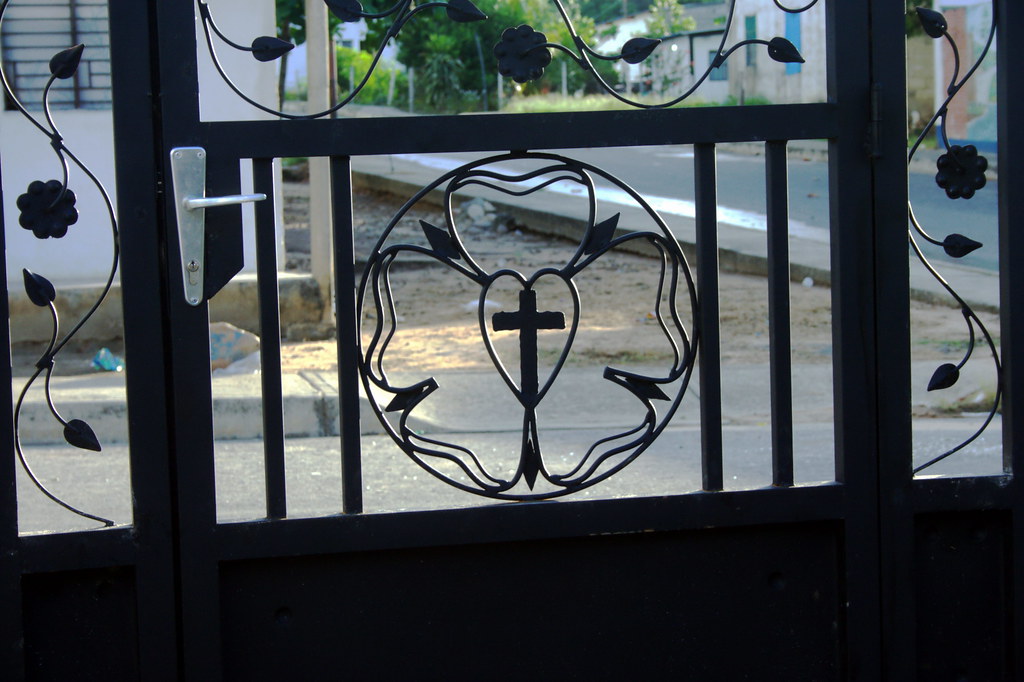
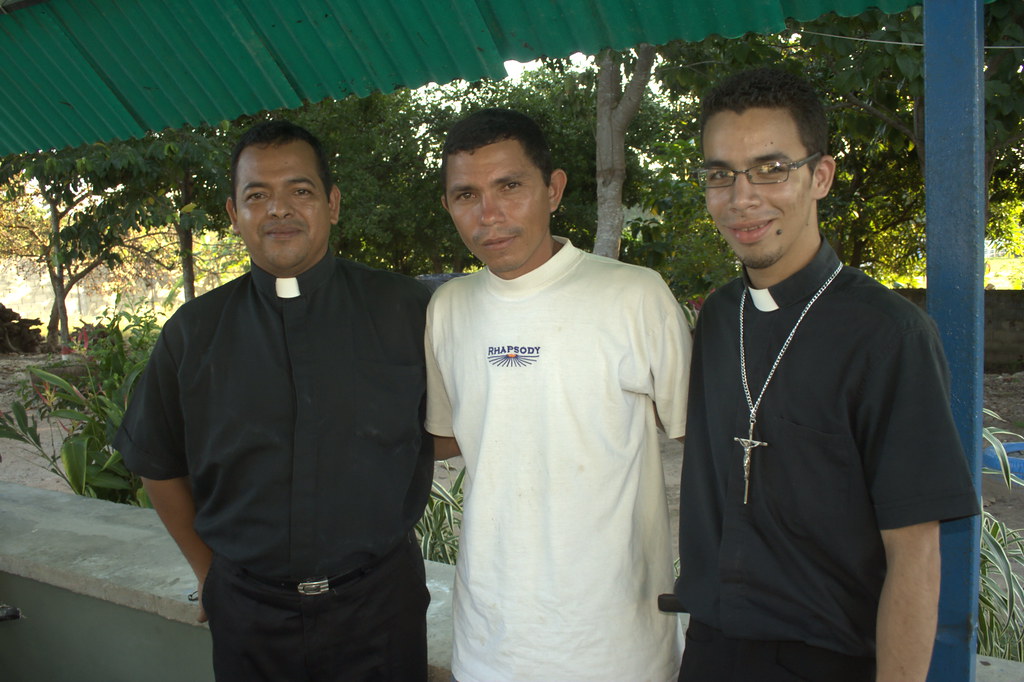 On Sunday, October 19, Pastor Adrian Ventura, president of the Lutheran Church of Venezuela, visited Barinas. That morning at Corpus Christi Lutheran Church, Eduardo played the guitar, I led the opening Service of the Word, and Pastor Adrian preached and administered the sacrament of Holy Communion. His sermon was excellent, but perhaps the most notable aspect of the service was that as it was underway, Venezuela experienced its
On Sunday, October 19, Pastor Adrian Ventura, president of the Lutheran Church of Venezuela, visited Barinas. That morning at Corpus Christi Lutheran Church, Eduardo played the guitar, I led the opening Service of the Word, and Pastor Adrian preached and administered the sacrament of Holy Communion. His sermon was excellent, but perhaps the most notable aspect of the service was that as it was underway, Venezuela experienced its 